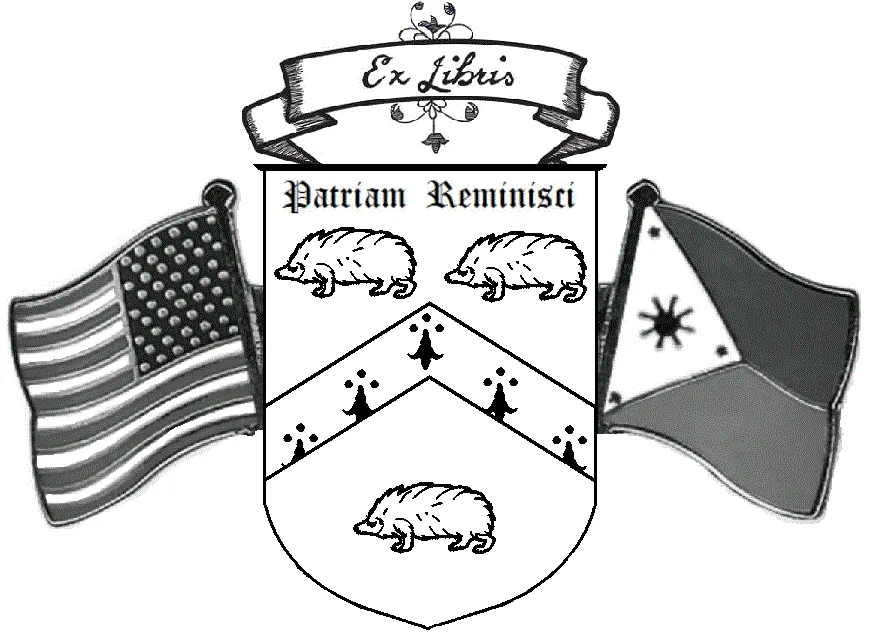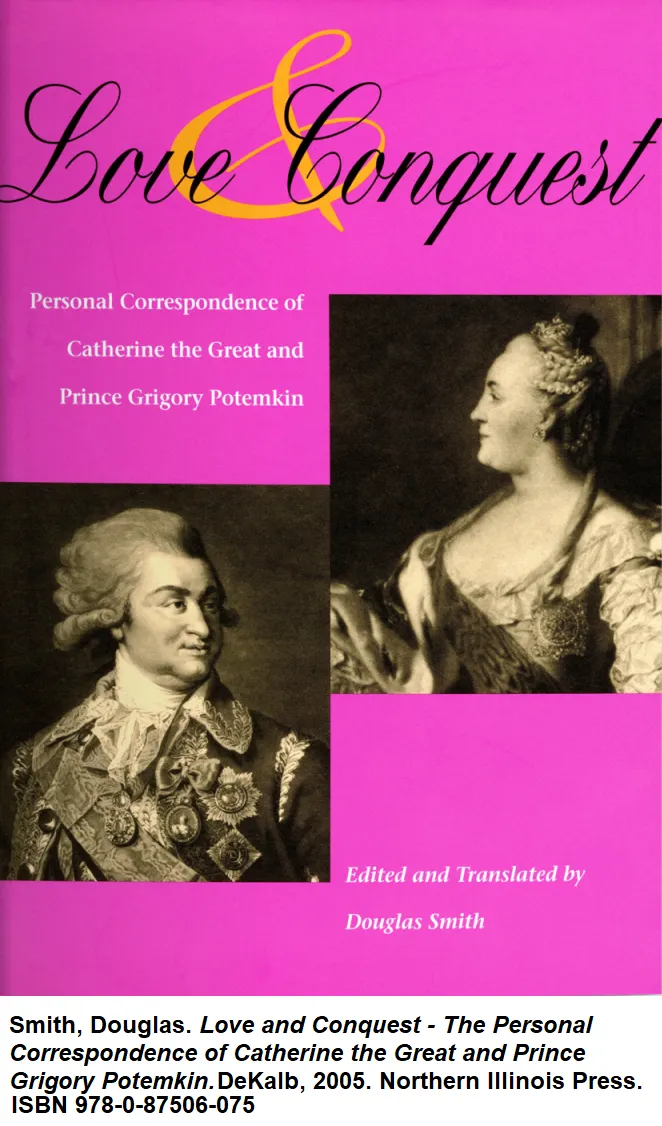Here it is. After a year-long study of Catherine and Potemkin, the final volume of that study (finished on December 30 of 2020, the Year of the Chinese Plague) was a collection of the letters exchanged between the two. The book's title perfectly encapsulates the defining features of the lives of these two. Potemkin was known as one of the century's greatest generals, and everything he did was motivated by his love of his Empress, his God, and his Country, in precisely that order. This collection was put together, translated, and edited, by Douglas Smith (though I'd be very curious to know what criteria he used to determine which letters to use in this collection).
I could not have chosen a better ending to the year.
First of All, Remember What You're Reading
Okay. So, if the ghastly pink cover and the lacey font in which the title is printed did not already make it clear, yes. This is a collection of letters exchanged between one of history's most passionate couples. And the first section of the book is the little love notes written in the throes of early passions. As such, it's sugary enough that you could flavor a wedding cake with it.
But I know what I'll do. I shall think, and about what precisely? For the sake of the rhyme you might say: about him. The truth be told, Grishenka alone is on my mind. (Letter 13, p. 22)
And my love is being kept in my heart under lock and key. It's awful how cramped it is in there. With great difficulty it squeezes itself inside, so mind well - it might just pop out somewhere. (Letter 18, p. 25)
sigh... There's 55 pages of this mawkishness, and another 20 pages of letters wherein the couple is ironing out the terms of their separation (which I've commented on extensively). My advice is to just roll your eyes and force your way through this section. There's a reason for it, and that reason is mainly to contrast it with the rest of the book.
Not Only a Collection of Love Letters
And what is the rest of the book? It consists of the mature, driven, deeply political, often sentimental, and intensely intimate correspondence of a husband-and-wife couple who, between the two of them, dominated Northern Eurasia for nearly 20 years. Affairs of state...
"[The] Prussian King can easily divert 80 thousand of his own troops and 25 thousand Saxons against the emperor [of Austria]. He would send 80 thousand against us, as well as about 50 thousand Poles. Pray consider [my empress], what would we use fight against this without having first finished with the Turks? I am the first to think that the Prussian King must pay, however, let us first have peace with the Turks." (Letter 373, p. 284 - 285)
...appear back to back with wifely little reminders so domestic that a reader forgets they were penned by the most powerful woman in any country since Wu Zetian.
"It occurred to me that you love my nice little fur coats, and I suppose those you have are already old, so I took it into my head to provide you with a new one. Wear it in good health."
(letter 338, page 229)."
And just because nothing heavy is ever complete without a dose of comedy, about 1 in every 5 letters contains a postscript wherein one of the two, either husband or wife, reminds the other to take better care of their latest lover. These post-scripts are in the tone one would use when discussing a new pet, which gives some insight into how these two 18th century imperial swingers viewed their off-the-battlefield conquests. "Sasha [Alexander Lanskoy] sends his compliments to you, his dear father(1)," is a frequent sign-off from Catherine's letters.
Interesting Choices
I found it interesting to note what was included and what was omitted from this collection. For instance, near the end of his life a fevered, delirious Potemkin sent Catherine a letter pleading for a "Chinese dressing gown," which was perhaps a reference back to Catherine's earlier gift of two Chinese dressing gowns to help him through the winter (letter 339, page 231). Though Smith includes the letters about the earlier gift, he does not include the letter from Potemkin near the end of his life asking for another (though he does make reference to it in his notes on the chapter). I found this odd considering nearly every biography I've read of Catherine or Potemkin did include this famous plea from the dying Field Marshall.
I would surmise the reason for its omission was because it would interrupt the flow. The book ends with a short string of letters from Potemkin which continually get shorter and less coherent, with ever-shrinking signatures, showing the physical deterioration of the "Serenissimus." Still, since this is the only book I've seen that includes the earlier gift to which this refers, and since this is one of the most famous letters between the two, I was surprised it was not included.
Still, the letters form a clear, "straight from the horse's mouth" picture of the interaction between Europe's most important couple of the 18th century. I certainly am glad I read it, and it was the perfect ending to my year-long study of these two.
So Who Should Read It?
Well history buffs, obviously. For anyone who wants to begin a serious study of this phase of Russian history, I'd recommend this book but not as a starting point. It's much more useful in this context if the reader already has some background knowledge on the two characters.
For more casual readers, it seems three separate books. A Romeo-and-Juliet-esque collection of syrupy love-letters, followed by an 18th century political thriller, followed by a war novel, all leading to an ending that returns to the books Ro & Ju beginning in tragic form. If you DON'T already know about the lives of these two, it's a tear-jerker.
(1) Far from actually being Potemkin's child (though he was young enough to be), Lanskoy was one of Catherine's later lovers. She often had them refer to Potemkin as their "father" as a way of establishing his seniority over them. The message to the neverending string of lovers was "he's my husband, you're something with a dick to keep me happy while he's away, and he knows about you. Serve well and you'll be well rewarded. Try to replace him and you'll fall."

